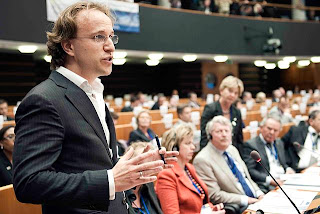The crisis in Syria has taken another turn, with the United States (US) new Secretary of State John Kerry announcing that America, along with other nations are planning to give further aid to the more moderate faction of the opposition rebels to help them overcome President Bashar al-Assad’s regime. Kerry has stated that no weaponry will be given to
Syrian rebels, in fear that they may end up in the hands of the extremists,
instead armoured vehicles and training could be provided.
As a meeting in Paris is about to
take place between Syrian opposition representatives and the international
community to discuss giving further aid to the rebels, the fighting does not
seem any closer to ending, in a conflict where about 70,000 people have been
killed.
Increasing humanitarian aid and providing limited military material to a divided opposition with many different interests is all well for the present situation on the ground in Syria, but long term strategies are needed to prevent further deaths and regional instability. The body armour, vehicles and training been reported to be included in the assistance package could assist in saving the lives of the rebel fighters from attacks on the ground, but would not help them from strikes from the air.
Although I do agree that weapons should not be provided to the rebels, I do however think air cover, in the name of a no-fly zone, similar to the one put in place overLibya
by British and French fighter jets, should be provided by the international
community. Half the battle would be won, if rebel forces did not have to worry
about being attacked from the air, and a no-fly zone could pressure either
Assad to back down and negotiating with the opposition coalition or bringing
the conflict to a quick military ending.
Increasing humanitarian aid and providing limited military material to a divided opposition with many different interests is all well for the present situation on the ground in Syria, but long term strategies are needed to prevent further deaths and regional instability. The body armour, vehicles and training been reported to be included in the assistance package could assist in saving the lives of the rebel fighters from attacks on the ground, but would not help them from strikes from the air.
Although I do agree that weapons should not be provided to the rebels, I do however think air cover, in the name of a no-fly zone, similar to the one put in place over
I acknowledge the fact that Russia
as a permanent member of the United Nations Security Council (UNSC) supports
the Assad regime and have vetoed past efforts to install a no-fly zone and for
foreign military intervention in Syria ,
arguing that outside military interference will not solve the conflict, but
instead inflame the already volatile situation. However, I disagree with Russia ’s
argument, as over the last 18 months or so, rebel groups have not got any
closer to ousting Assad and peaceful negotiations have failed after many
attempts. Although the reasons for Russia’s support stem from them having a
naval base in Syria, more effort by the international community to persuade
Russia to support a no-fly zone over Syria and to pressure Assad to negotiate
with opposition forces should be a major priority.








